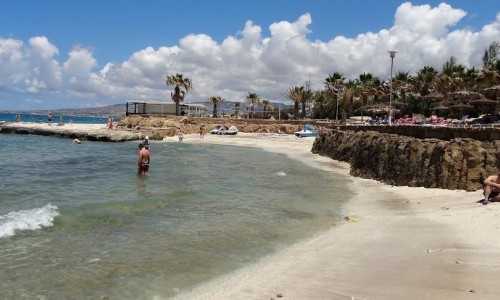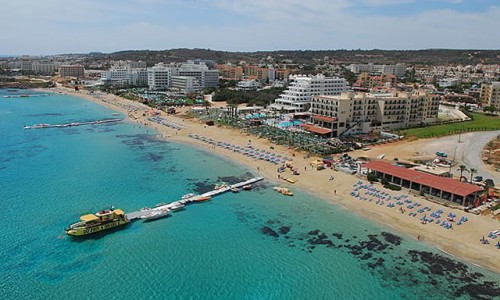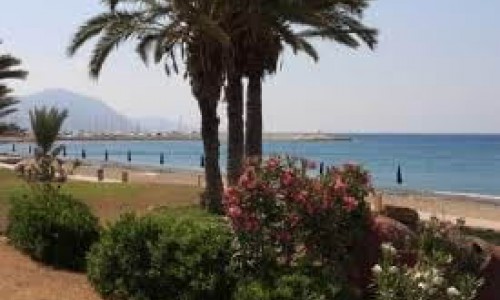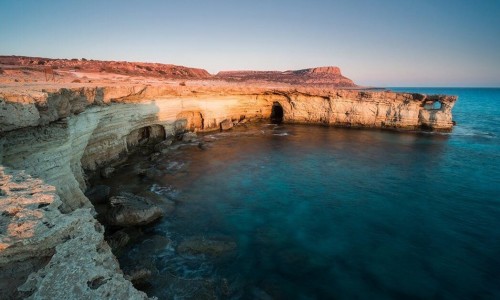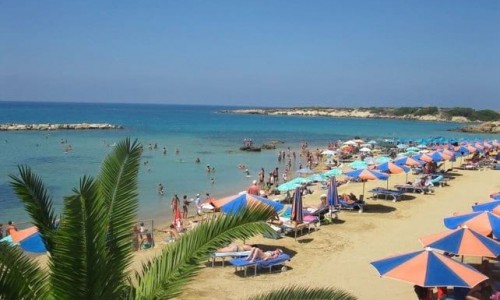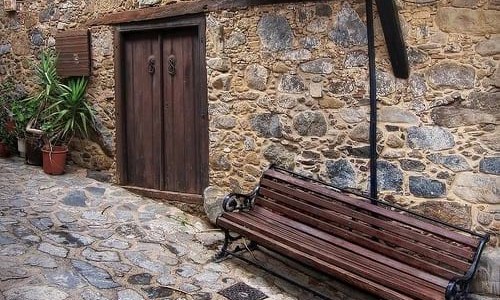Paralimni
Paralimni, tucked away in the southeastern part of Cyprus, is a town that has steadily grown from a modest farming settlement into a bustling center of life for the Famagusta region. Though it does not sit directly on the coast, it has become inseparable from the rhythm of the nearby seaside towns of Protaras and Ayia Napa. What makes Paralimni stand out is its ability to carry both the spirit of old Cyprus and the convenience of modern living, offering a blend of authenticity and vibrancy that few places achieve so effortlessly.
A Town Shaped by Land and History
The very name “Paralimni” means “by the lake,” pointing to the seasonal body of water that once dominated the area. While the lake no longer holds the same importance for agriculture as it once did, it left behind fertile soil and a deep connection to the land. In older times, families cultivated wheat, barley, and lentils, while olive and carob trees marked the countryside. Vineyards dotted the hills, supplying wine for both local use and trade.
Paralimni also reflects the shifting tides of Cypriot history. It was originally a scattered village, but after 1974, many displaced Greek Cypriots resettled here from towns and villages in the north. This sudden expansion changed the face of the community, turning it from a rural backwater into a regional center. Today, traces of its past are visible not only in its architecture but also in the collective memory of its people. Generations carry stories of migration, resilience, and adaptation, giving Paralimni a layered identity that goes beyond its appearance as a modern town.
The Beating Heart: Paralimni’s Square
Every Cypriot town has a gathering place, and in Paralimni, this role belongs to its central square. At its core is the grand Church of Saint George, a striking Byzantine-style building that immediately commands attention. Alongside it stand two smaller churches, also dedicated to Saint George, dating back to earlier centuries. Together they create a living timeline of devotion, architecture, and artistry.
The square itself is more than just a backdrop—it is a stage for daily life. Locals sit at shaded cafés sipping Cypriot coffee or frappé, while elderly men gather to exchange stories and play backgammon. Children chase each other around the fountains, and in the evenings families stroll leisurely, greeting friends and neighbors. Unlike the transient energy of the coastal resorts, Paralimni’s square radiates continuity, a rhythm of community life that has carried on for generations.
Old Traditions in a Modern Setting
One of the charms of Paralimni is how easily old and new coexist. On one street you may find a contemporary boutique, a sleek bakery, or a modern office block, while the next alley may reveal a stone-built house with wooden shutters and vines climbing its walls. Many families still preserve traditional practices: baking bread in outdoor ovens, pressing olives, or preparing sweets like loukoumia and pasteli.
Markets remain a cornerstone of local life. Weekly markets overflow with fruit, vegetables, herbs, and homemade goods, often sold directly by farmers. These gatherings are more than just commerce—they are social events where conversations are as important as purchases. Visitors who wander through them often discover the warmth and hospitality that Cyprus is famous for.
Nature and the Lake of Paralimni
Though Paralimni lies inland, its natural environment is unique. The seasonal lake, now a protected area, is a haven for biodiversity. In winter and spring, when it fills with rainwater, it becomes a stopover for migratory birds such as herons, plovers, and flamingos. The lake’s salt-rich soil also supports rare plant species that add to its ecological value. In summer, when the waters evaporate, the landscape transforms into a shimmering plain of cracked earth, reminding visitors of the harsh beauty of Cyprus’ climate.
For nature lovers, the surrounding countryside offers plenty to explore. Carob groves, olive orchards, and wildflower meadows give way to trails ideal for walking and cycling. In spring, fields are covered in bright anemones and poppies, while in autumn the earthy scents of dry herbs and soil dominate the air.
Festivals, Faith, and Community Spirit
Religion and tradition remain deeply woven into the fabric of Paralimni. The feast days of saints, especially Saint George, are celebrated with processions, church services, and community feasts. Easter, however, is the highlight of the year. The entire town comes alive with preparations: women bake traditional pastries, men prepare lamb for the spit, and children decorate candles for the midnight service. On Holy Saturday night, the square fills with candlelight as the Resurrection is proclaimed, creating an atmosphere of both solemnity and joy.
Beyond religion, Paralimni is also known for its strong sense of community. Cultural events, concerts, and performances often take place in local venues, while sports and youth activities foster a spirit of togetherness. Traditional music and dance groups keep heritage alive, while younger generations experiment with blending Cypriot folk influences with contemporary art and sound.
Everyday Life: A Window into Cyprus
For visitors, Paralimni offers a rare chance to see how Cypriots live day-to-day, away from the glamour of tourist resorts. Schools, administrative offices, and small businesses anchor the town, while neighborhood bakeries, barbershops, and tavernas remind one that life here is deeply local.
Food is central to daily life. Small family-owned tavernas serve dishes like kleftiko (slow-cooked lamb), souvla (spit-roasted meat), and halloumi cheese grilled to perfection. Cafés offer fresh pastries, tiropita (cheese pies), and sweet syrupy baklava. Eating here is not just about nourishment—it is about sharing time, stories, and connections.
Paralimni and the Coast: A Symbiotic Relationship
Though inland, Paralimni has always looked to the sea. Many of its residents work in the nearby resorts of Protaras and Ayia Napa, while others maintain ties with fishing and maritime life. In the summer, families head to the coast to swim in the turquoise waters, picnic on sandy coves, or take boats out to explore the coastline. In many ways, Paralimni provides the stability and infrastructure that support the more seasonal, tourist-driven life of the surrounding coastal areas.
A Town with Character
What makes Paralimni special is not monumental landmarks or flashy attractions—it is the character of the town itself. It is a place where tradition is lived, not just displayed; where history is remembered, not forgotten; where daily life moves at a pace both steady and welcoming. For the traveler who wishes to go beyond the beaches, Paralimni offers a chance to step into the heart of Cyprus, to experience the island not only as a destination but as a living, breathing home.
Paralimni is a town of contrasts and connections. Rooted in its agricultural past yet firmly adapted to modern realities, it has managed to grow without losing its identity. Its churches, lake, traditions, and community spirit create a portrait of Cyprus that is both timeless and contemporary. For visitors, it provides not just a stopover on the way to the coast, but a destination in its own right—a place where authenticity thrives, where stories unfold in the rhythm of everyday life, and where the soul of eastern Cyprus can truly be felt.





















